No more money & fast cars
The filter is here to stay
Read the script & play the part
Just another face in the fray
Salar Rajabnik, better known as Darker Lighter, isn’t just another voice in the indie rock and post-punk chorus—he’s a singular presence with a sound that resonates deep and true. Born in Tehran and raised in Kansas City, Rajabnik’s music is shaped by crate-digging obsessions, cultural contrasts, and an unrelenting passion for songs that stir emotion at the core. Now firmly planted in Los Angeles, he has been quietly influencing the underground from behind the scenes; with the release of his self-titled debut, Rajabnik finally steps boldly into the spotlight.
His debut self-titled LP Darker Lighter is a baptism by fire: raw, reflective, and relentless. Rajabnik, who’s cut his teeth behind the scenes with the likes of Foo Fighters and Kim Gordon, finally takes center stage, fusing driving basslines, jangling guitars, and ghost-ridden vocals into a sound that feels both urgent and timeless. Darker Lighter is Rajabnik’s cathartic exploration of loss, heartbreak, identity, isolation, and political unrest…a deeply personal and emotionally charged debut.
In the opening track Hanging On, Salar Rajabnik drapes the wreckage of identity over spindled rhythms and crumpled confessions. Here, the spine of a man bent backwards by appeasement creaks under its own strain. Drums, both analogue and electric, throb with resignation, while warm synths and spindly guitars twitch like muscle memory. It’s music as excavation: prying loose the fossils of selfhood buried beneath years of “yes.” Prince’s punk-funk specter leers behind every rhythmic jolt, while spectral nods to The Pretenders and Television peek through jangling chords like postcards from another life. Yet this isn’t retro cosplay…it’s revival, resuscitation and reclamation in the truest sense.
Someday Soon snarls and stumbles through the monsoon. A song soaked to the bone, defiant in its drenched denim. Rajabnik’s voice cracks and coaxes in equal measure. The track’s storm-lashed tempo conjures the flannel-clad ghosts of MTV’s 120 Minutes: Dinosaur Jr. in the drainpipe, Sonic Youth in the rafters, Meat Puppets muttering in the mirror. Guitars screech and scrape like train brakes in a tunnel, while the bassline gallops.
Be arrives like a sigh at the end of the argument. Guitar riffs grind under the weight of strings that soar then vanish like smoke in wind. It’s a song of static truths and shifting names. Longing lingers in every corner, but it’s matched by the cool acceptance of displacement. The lyrics trace outlines of belonging on fogged glass, only to watch them disappear. Here, the album’s heartbeat is clearest: fractured, feral, and forever searching for a home that changes shape the closer you get.
“Be is one of the most deeply personal songs i’ve ever written,” says Rajabnik. “It’s about a feeling I get often; which is that I find myself feeling out of place. Whether ideologically, artistically or socially, often due to being unwilling to compromise my identity or principles. Themes of biculturalism, socio-political alienation, the fallout and consequences of activism and more influenced the meaning of the tune.
Watch the visualizer for Be below:
Nothing’s Ever Gonna Be The Same Again barrels in like a battering ram through a burning barricade. Rajabnik laces looping riffs with enough distortion to set circuitry on fire, a barrage of blown-out guitars and throttled drums that spit in the face of complacency. The track drags protest through the static, a serrated scream aimed squarely at the snickering suits who profit from collapse. This is a chainsaw symphony of fatigue and fury.
First Time takes a sharp left: no less urgent, but aimed inward. Here, the wounds are romantic, the salve sudden. Love, thought long dead and buried, bursts back through the topsoil with an almost terrifying joy. It’s sweet without being saccharine, a sprint through the fog with the headlights on. Reznor-esque bass buzzes beneath bright-eyed guitar lines, and Rajabnik sings like a man who just remembered what breathing feels like. Shadow of A Doubt swims in the wreckage of love lost and never fully returned. It’s soaked in static and sorrow, but never slinks into self-pity. Instead, it pleads with cracked vocals and calloused chords. Each chorus is a hand reaching through thick glass, hoping for a grasp that never quite arrives. Open Up, Sunshine is the sharpest spark in the pile: drenched in a shoegaze fuzz, driven by sheer will with strong, earnest vocals. There’s no mysticism here, just pure propulsion. It stomps, stings, and screams toward transcendence.
Nice To Meet You leans into the lull of a moment missed, or nearly caught, with a similar vibrant energy to the Dandy Warhols and 10,000 Maniacs’ classic Candy Everybody Wants. A brief brush of serendipity on a passing street corner, where a glance lingers longer than it should, and the mind spirals into what-ifs. It is a touching portrait of chance meetings tattooed onto memory, pulsing softly beneath the skin. Electronic Eye swipes at the sheen of the screen, where every filtered grin conceals a vacuum. It’s all angles and algorithms, a satire served on circuit boards. The track gnaws at the guts of performative culture, chewing through curated perfection to expose the glassy-eyed clones nodding along in digital purgatory. Like Birds Fly Away stretches skyward with quiet resolve. A gentle pull toward dissolution of fear, of repetition, of cages unseen. Every line hums with the weight of doubt as much as the pull of promise, and yet the message is clear: leave the wreckage, become the wind.
Did You See Me Walking? bathes in ambiguity. It’s a sidewalk séance, a passing face that burns like déjà vu. Recognition twisted by distance, desire obscured by doubt. Is it real or imagined? A psychic slipstream of yearning where the answer never quite arrives. Take It All In is the slow dissolve: days that loop, questions that stretch, and meaning that drips through cupped hands. Time doesn’t move here; it circles. The flood wears down the stone, and the voice within wonders: what’s left when nothing stays?
Pre-order vinyl here.
Darker Lighter was recorded at Foo Fighters’ legendary Studio 606 with production maestro Robert Adam Stevenson (Paul McCartney, Queens Of The Stone Age, The Kills, Jeff Beck).
“While this album was not intended to be a concept album and therefore is not one, there is something of a central set of lyrical and musical themes that run through all of the lyrics,” says Rajabnik. “Many of the songs were written in and amongst devastation; whether reflective of past pains or actively in response to present ones. Reflections on losing loved ones abruptly, broken hearts, deep traumas to do with identity and isolation, refusal to compromise one’s identity, and political dissidence are all present. Musically there is something of a range as well; though the average seemed to land in the median of the sonic landscape I tend to gravitate towards. Still, more than anything, the central notion present in all of the songs is a sense of earnestness around getting across a message of fighting to retain hope in the face of tragedy. Simply put: a record about fighting to still give a fuck in the modern dystopian hellscape we live in.”
Follow Darker Lighter:

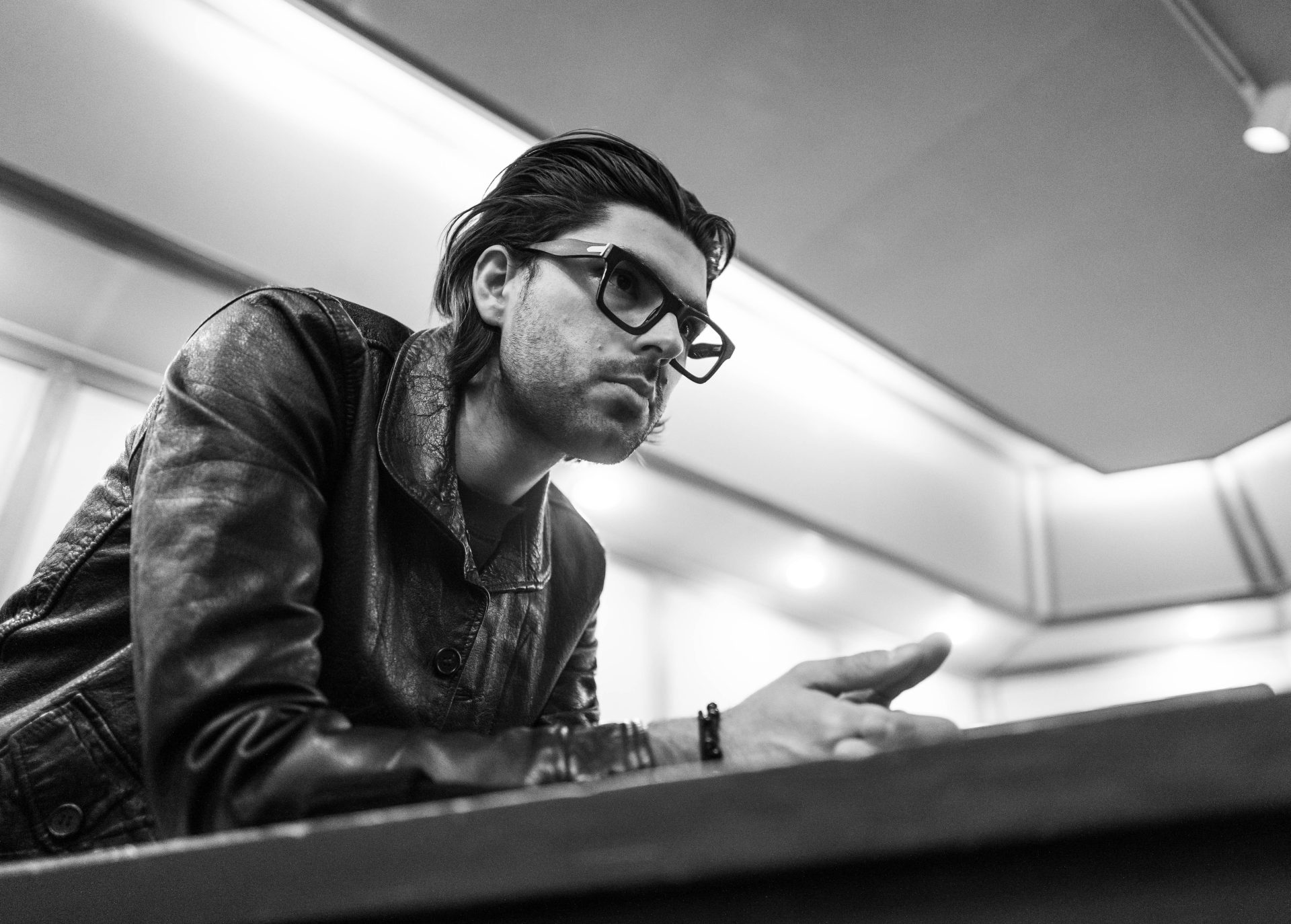

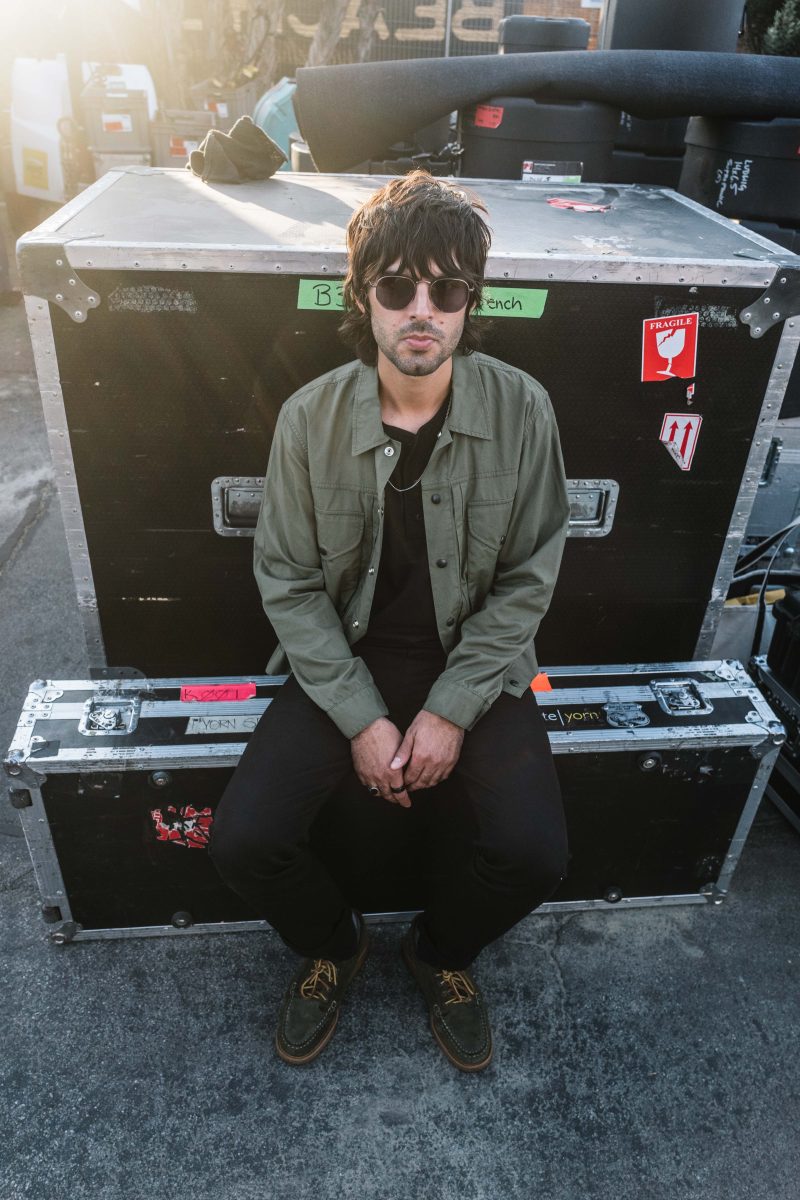
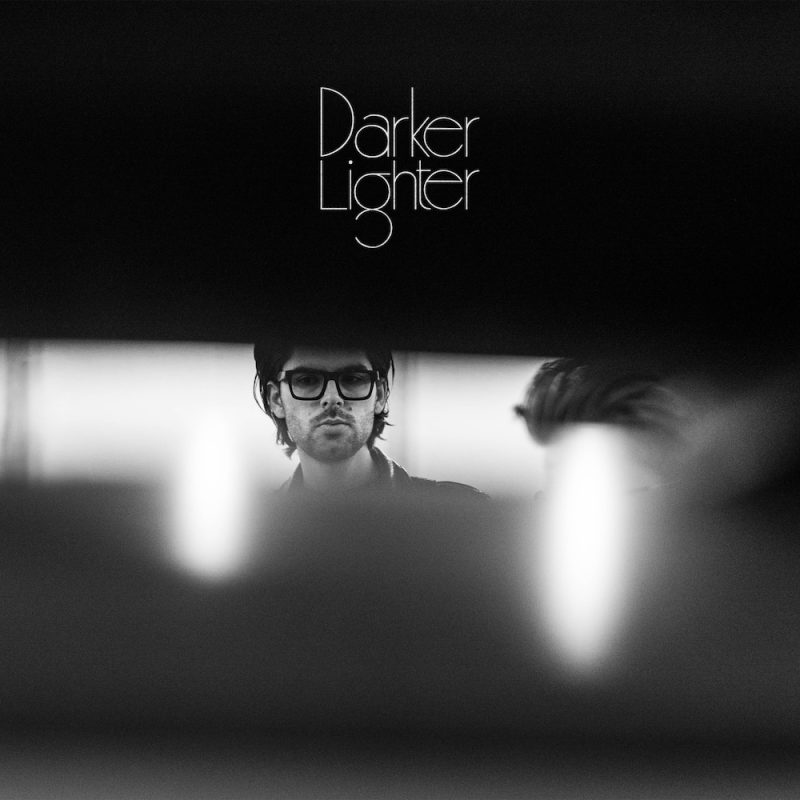
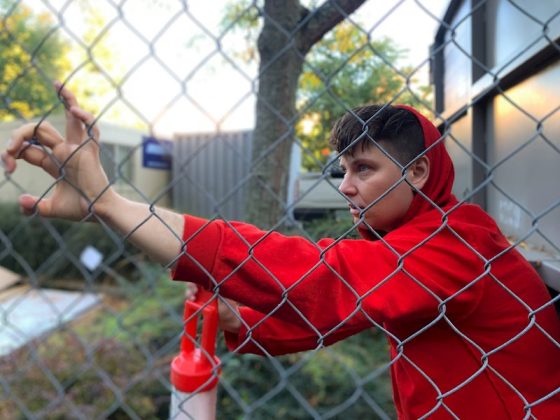
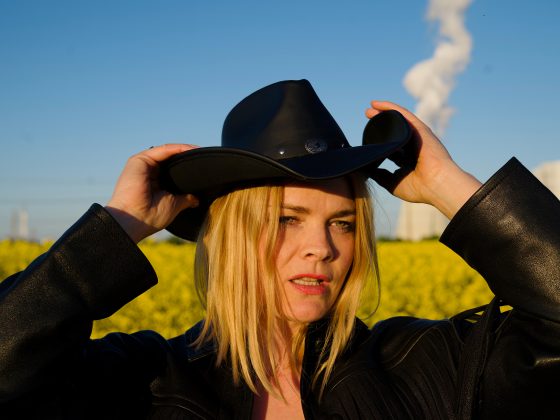










 Or via:
Or via: